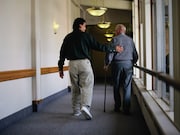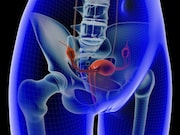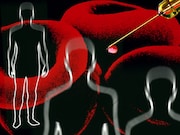Sepsis Common in Terminal Hospitalizations, Discharges
Most common underlying causes of death in sepsis are solid and hematologic cancers, chronic heart disease
Fewer Older Men Assessed, Treated for Osteoporosis
Fewer older men than women, even with higher risk, undergo DXA screening, 25(OH)D measurement
Nurse Navigators Aid Outcomes After Heart Attack Discharge
Observed benefits include reducing acute myocardial infarction readmission, mortality
Hospital Prices Growing Faster Than Physician Prices
Efforts to reduce health care spending should focus on hospital prices
Artificial Intelligence Predicts Survival in Epithelial Ovarian Cancer
Radiomic Prognostic Vector IDs patients with median overall survival of less than two years
CDC: Heterosexual Syphilis Transmission Up for Drug Users
Substantial proportion of heterosexual syphilis transmission seen in drug users, especially meth users
Over Half of Hip Replacements Expected to Last 25 Years
Second review shows 82.3 and 69.8 percent 25-year survival for total, unicondylar knee replacement
Risk Factors ID’d for Diffuse Large B-Cell Lymphoma Mortality
In older patients, risk factors include advanced age, DLBCL stage, Charlson Comorbidity Index
Most A-Fib Patients Have at Least One Identifiable Trigger
Triggers more commonly associated with family history of atrial fibrillation, less likely with CHF
Brief Anesthesia in Infancy Does Not Mar Neurodevelopment
General anesthesia less than one hour does not seem to alter neurodevelopmental outcome at age 5














